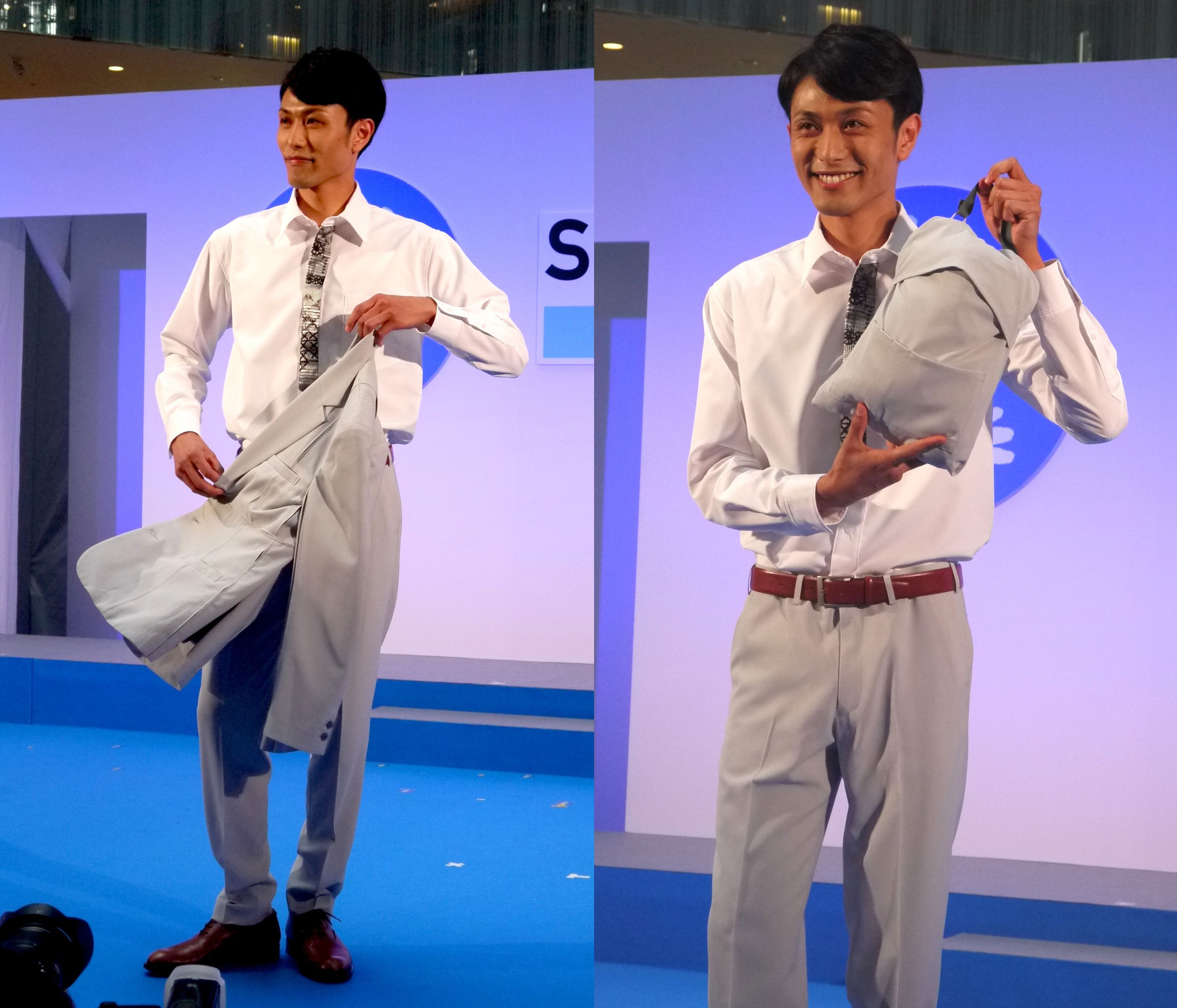Dressed in a gray suit, a model stops at the end of the runway and strikes a pose before taking off his jacket. Still standing at the end of the runway, instead of throwing the jacket over his shoulder, he begins to casually flip and fold it. Then he holds it up. What had appeared at first glance to be a plain, unassuming suit jacket had been swiftly transformed into a smart little bag.
This unusual garment was being presented as the Grand Prize-winning design of 2014 Super Cool Biz, a student fashion-design contest that celebrated its winners on May 30 in the atrium of the Kitte building in Tokyo's Marunouchi district. It was one of several designs that were showcased to commemorate 10 years of Japan's Cool Biz initiative.
In 2005, Yuriko Koike, then-environment minister of Japan, announced a plan to cut carbon-dioxide emissions by 6 percent to nudge Japanese society toward a more sustainable future. To further this aim, she spearheaded "Cool Biz," a movement that encouraged wearing lighter, more casual work wear to reduce the use of electricity via air conditioning and similar devices. The campaign was so pervasive that by 2010, "Cool Biz" was a catchphrase that 88 percent of Japanese people were aware of — and it had reportedly decreased greenhouse-gas emissions by around 2 million tons.



